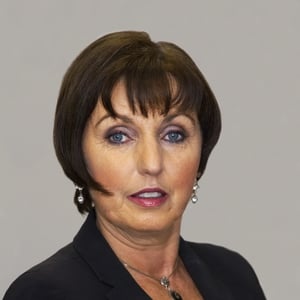Public health legislation must be amended to include Intreo employment offices, which are currently exempt from regulations governing the wearing of masks, according to the union representing senior public servants.
The Association of Higher Civil and Public Servants described the current omission of Intreo offices as "extremely concerning and somewhat extraordinary".
Speaking ahead of today's AHCPS annual conference, General Secretary Ciaran Rohan acknowledged that these offices had had their opening hours reduced due to the pandemic, but said both employees and members of the public should be included in the legislation requiring masks.
He confirmed that AHCPS members had reported incidents where members of the public attending Intreo offices had refused to wear masks, adding this could put customers and staff at risk.
"While people are able to perform a lot of functions online, Intreo office hours are being restored to pre-pandemic times and many still prefer to engage with a member of staff, face to face. While the majority do abide by mask wearing, these offices' exclusion from the legislation means that staff and the public they serve are not protected by the law", he said.
In a statement, the Department of Social Protection said it "takes the health and welfare of its staff and its clients extremely seriously".
"Regulations mandating the wearing of face coverings were introduced initially for public transport and shops. Government buildings were not included in these regulations as it was considered that entrance by the public was controlled and social distancing was rigorously enforced.
"The department's policy is to adhere strictly to all public health guidelines, including social distancing. Additionally, perspex screens were installed in all open hatches and reception desks," the statement said.
"The practice in Intreo centres is that customers are advised to wear masks. This is displayed on posters at entrances. Additionally, customers without masks are offered one at the entrance. The rate of compliance has been very good with few incidents of refusal. In most cases refusal is based on medical grounds which would be the same under regulations."
The AHCPS also called for appropriate supports to ensure the benefits of remote and blended working are "fully realised and protected".
Ciaran Rohan said AHCPS members were "broadly supportive" of its continuation, but warned that there was a downside.
"At the same time, a large proportion of our members cite that they are spending more time working. A balance between flexibility and protection of workers' rights must be achieved if we are to fundamentally change the way and places in which we work," he said.
Mr Rohan cited a survey carried out by the AHCPS in the middle of last year of over 1,500 members, 89% of whom felt remote working when properly set up would improve work-life balance.
However, over half of respondents (53%) had found the new ways of working made it hard to switch off, and over a third (35%) reported an increase in workload since they began working from home.
"We are therefore calling on Government to ensure that enhanced wellbeing policies and appropriate supports for blended working are put in place. We are also calling for legislation on the 'Right to Disconnect' to be implemented for greater protection of workers", he added.
For the first time in its 80-year history, female members of the senior public servants' union outnumber males in its 3,000-strong membership - reflecting what the AHCPS calls "a dramatic shift over the last decade in women joining the senior management grades in the civil and public service".
The conference will also hear an address from President Michael D Higgins praising their contribution during the pandemic, delivering essential services "to the highest standard possible".






